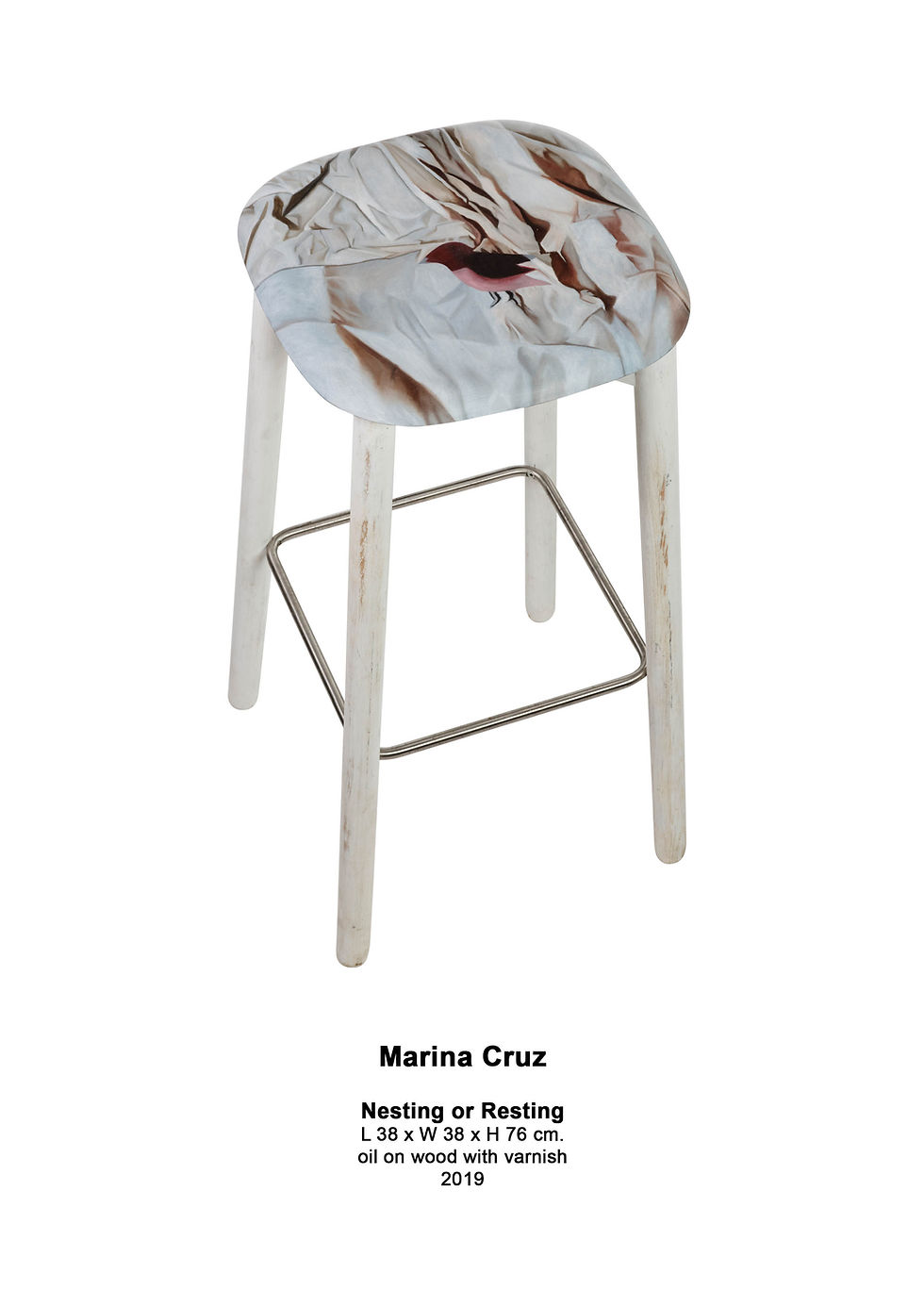Seats have been an important part of humanity’s history. That the words associated with them are as varied as the forms they take, attests to it. Thrones, for example, have evolved to be symbols of power and status. The word “chairman,” for example, denotes the special connotation of authority. The phrase, “ex cathedra,” literally “from the chair,” means a pronouncement of infallibility. But humbler seating such as chairs and stools, which are found in public places, establishments, and homes; have been associated more with rest and comfort, such as a when one sits on them to rest after standing or walking for too long. Or for accommodation, such as when one is invited to sit in the company of someone. Saving someone a seat for someone, is a sign of fondness. Refraining from taking a seat while the national anthem is being played, or when a judge enters, is a sign of utmost respect. Functionally, chairs and stools become a place to rest, to contemplate, to plan, to do work, or to socialize in; depending on their context and arrangement. They could also be a place of inclusion, such as when people are seated around a table. Or of exclusion, such as when someone is isolated from an organized group of chairs. It can be a tool for execution, such as in the electric chair. Or as an area of final staging in certain cultures as a community mourns the passing of a beloved member, such as in a death chair. Chairs figure in all aspects of our lives.
Chapter 2: The Empty Chair Project by the Visual Arts Helping Hands Foundation, Inc. has given free reign to fifty-six visual artists to focus on chairs and stools, and transform them as they please, to highlight the various associations of an empty chair. In doing so, the artists may choose to transform the chair into an aesthetic object, and it may lose its original function. But it is transformed by the artist’s interventions into a visual metaphor to highlight its psycho-social connotations, and make us more aware of our overall wellbeing as social beings.
Chapter 2: The Empty Chair Project follows two years after the celebrated Helping Hands: Chapter 1, a landmark exhibition held at Pinto Art Museum, and created by twenty-four visual artists to raise funds for the emergency and hospitalization needs of fellow visual artists. Letting their hands be cast, they literally and metaphorically lent a helping hand to fellow artists and targeted beneficiaries, as they transformed these hand casts into art, whose eventual sale became the endowment from which the foundation was built. Aside from assisting several members of the community who have had medical emergencies, the fund also benefited the Center of Possibilities, Inc., a foundation devoted to improving the quality of life of people with developmental disabilities, and the families that support them.
Chapter 2: The Empty Chair Project follows in the same track. As the invited artists offer a chair of solidarity and support for fellow visual artists who might need financial assistance in hospitalization and emergency care; they also encourage the public to ponder their own associations of the empty chair through this public exhibition. Like the previous exhibition, this too will benefit public institutions, namely, The Metropolitan Museum of Manila, which serves as host to this worthy endeavor, and several mental health groups that cater to the greater public and provide support for mental wellness.
The simple act of offering a seat is an act which acknowledges a person as honored guest or equal. It dignifies the other, and it is a sign that one recognizes the humanity in them. As the artists offer us their chairs and stools, we are reminded of our duty to each other. In a community that is highly stratified and divided by status and affiliations into cliques and groups, the act of offering a chair reminds us all of the precious qualities that unite us and make us human. In an art scene that is increasingly driven by the market, the act of offering a seat, and receiving it in turn, reminds us of generosity and camaraderie. In these troubled times, their act of welcoming us with their seats provide us comfort, and inspire us to do the same to others in return.
Ricky Francisco








